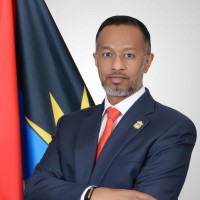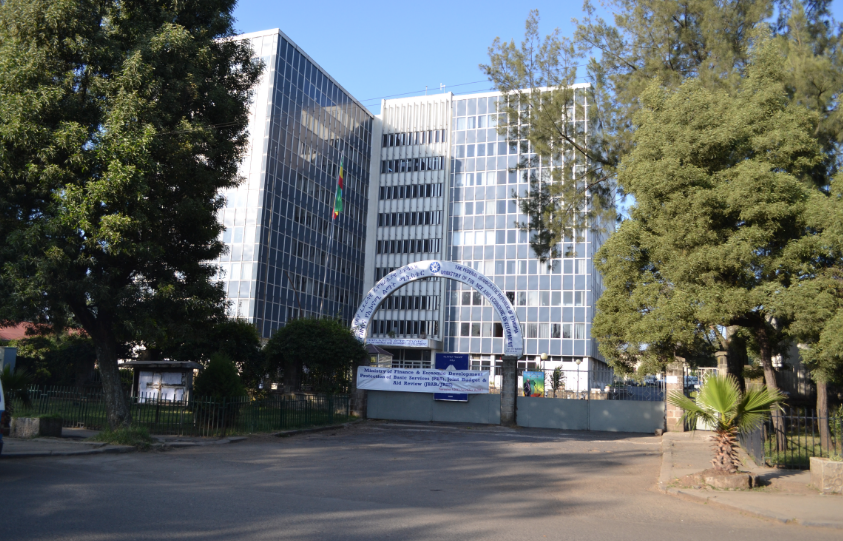
Oct 4 , 2025
By Theon Ali
Earlier last month, leaders from African states and 15 Caribbean countries gathered in Addis Abeba for a summit that placed collaboration high on the agenda. The setting offered a striking contrast to the marginal trade flows between the two regions, which together account for over 1.56 billion people, yet less than three percent of total exports for both regions. Prime Minister Gaston Browne of Antigua and Barbuda addressed delegates with a pragmatic message that unity requires more than eloquent speeches.
A summit held earlier last month in Addis Abeba by leaders of Africa and the Caribbean Community was a poignant reminder of the deep ties between them. They are ties that are rooted in our history and culture, as well as in our shared outlook on the global challenges confronting us. If we are serious about building a stronger partnership to navigate these challenges and discover opportunities for growth, we should focus on what we can do together now.
The sense of what is possible was all around us in our host city, which has so spectacularly thrived from investment and modernisation. In Antigua and Barbuda, our people share similar aspirations for growth and progress. At the summit, Prime Minister Gaston Browne emphasised the need for a balance between principle and pragmatism, making clear that unity between us needs to be built on action rather than words.
There are three areas in particular where Africa and the Caribbean can make immediate progress.
Trade is the most striking opportunity. Our combined markets, with a total population of 1.56 billion, represent a substantial proportion of the global population, yet trade between us remains marginal, accounting for less than three percent of their total exports for both regions. The combined GDP of Africa and the Caribbean exceeds 2.85 trillion dollars, yet trade between the two remains less than 729 million dollars annually.
This is not due to a lack of demand, but a lack of infrastructure and coordination. A preferential trade agreement would be a good starting point, as would targeted trade missions and investment forums.
Global trade maps tell a story. The goods and ideas that flow through a handful of dominant hubs in the Global North, whether it is London, New York, Tokyo, or Shanghai, mirror old patterns, not future potential. It is important to grow our collective presence on the global stage. In regions like Africa and the Caribbean, it can be easy to forget we do not need to follow old paths. We can redraw routes and build a network that reflects our own priorities.
There is already an appetite on both sides. African products could find ready markets in the Caribbean. In return, Caribbean goods and services could gain new footholds across the African continent.
We have already seen partnerships between Barbados-based and Nigerian fintech companies, collaborations in the creative industries through initiatives like Afreximbank’s CANEX programme. There have also been joint efforts in sustainable development and trade led by HenleyCaribbean and the Caribbean Media Corporation.
These examples illustrate the breadth of potential innovation and market opportunities that arise from collaboration between the two regions. Building on these occasional collaborations will not happen without political will and practical solutions. A shared trade platform could help fill economic gaps and build trust.
Education is another area where collaboration can bring mutually beneficial results. Our universities face similar issues and are striving for many of the same goals. A joint academic network could support student exchanges, research partnerships, and shared degrees. Beyond the cultural benefits, such programmes could help expand our collective capacity in areas like climate science and digital innovation.
Connectivity, however, is the most urgent priority.
Without direct air and sea links, the hopes for our ambitions succeeding will be greatly hampered. It amazed me to learn there are currently no direct flights between the Caribbean and Africa. As Prime Minister Browne stated, even one weekly direct flight between the regions, subsidised if necessary by a coalition of states, could unlock new opportunities in tourism, trade, and cultural exchange. It would also send a clear signal that we are serious about closing the distance. Not only symbolically, but physically.
In my work in the Gulf region, we have already signed an air services agreement with Qatar, allowing the airlines of both countries to operate unlimited passenger and cargo flights between our two countries. There is no reason why we should not strive for similar arrangements between African countries and the Caribbean. Of course, none of this will happen overnight. But it does not need to. What matters is that we start. Too often, we have allowed process to get in the way of progress. We have made the right speeches, signed the right declarations, and then failed to take the first step.
This time should be different. The political will is there. The economic logic is sound. What is needed now is a willingness to prioritise a few achievable goals over grand but vague ambitions.
During the discussions at the summit, progress was made toward goals such as visa waivers, double taxation treaties, and investment protection. Visa waivers between Antigua and Barbuda and three different African countries have been signed since the summit in Addis Abeba. It is crucial that such developments lay the infrastructure for a prosperous trade relationship.
Africa and the Caribbean are not distant allies seeking common ground. We are longstanding partners with a shared sense of purpose. With renewed focus, this relationship can evolve into a model for South-South cooperation grounded in mutual respect, shaped by joint priorities, and guided by a vision we define together.
PUBLISHED ON
Oct 04,2025 [ VOL
26 , NO
1327]


Radar | Apr 30,2024

Sunday with Eden | Sep 16,2023

Radar |

Commentaries | Oct 26,2024

Viewpoints | Sep 28,2024

Sponsored Contents | Apr 05,2022

Radar | Aug 13,2022

Advertorials | Aug 04,2025

Fortune News | Jun 08,2019

My Opinion | May 24,2025

Photo Gallery | 171447 Views | May 06,2019

Photo Gallery | 161687 Views | Apr 26,2019

Photo Gallery | 151410 Views | Oct 06,2021

My Opinion | 136289 Views | Aug 14,2021





Dec 22 , 2024 . By TIZITA SHEWAFERAW
Charged with transforming colossal state-owned enterprises into modern and competitiv...

Aug 18 , 2024 . By AKSAH ITALO
Although predictable Yonas Zerihun's job in the ride-hailing service is not immune to...

Jul 28 , 2024 . By TIZITA SHEWAFERAW
Unhabitual, perhaps too many, Samuel Gebreyohannes, 38, used to occasionally enjoy a couple of beers at breakfast. However, he recently swit...

Jul 13 , 2024 . By AKSAH ITALO
Investors who rely on tractors, trucks, and field vehicles for commuting, transporting commodities, and f...

Oct 4 , 2025
Eyob Tekalegn (PhD) had been in the Governor's chair for only weeks when, on Septembe...

Sep 27 , 2025
Four years into an experiment with “shock therapy” in education, the national moo...

Sep 20 , 2025
Getachew Reda's return to the national stage was always going to stir attention. Once...

Sep 13 , 2025
At its launch in Nairobi two years ago, the Africa Climate Summit was billed as the f...

Oct 5 , 2025 . By NAHOM AYELE
In Meqelle, a name long associated with industrial grit and regional pride is undergo...

Oct 5 , 2025 . By BEZAWIT HULUAGER
The federal government is set to roll out a new "motor vehicle circulation tax" in th...

Oct 5 , 2025 . By NAHOM AYELE
The Bank of Abyssinia is wrestling with the loss of a prime plot of land once leased...

Oct 5 , 2025 . By BEZAWIT HULUAGER
The Customs Commission has introduced new tariffs on a wide range of imported goods i...